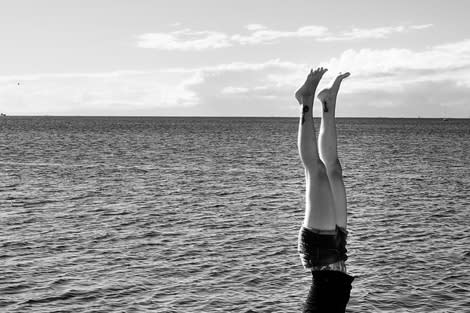Are We All Addicts? Here's How Yoga Can Help!

Can yoga stand in as an alternative to violence and addiction?
The latest episode of URBAN YOGIS on The Chopra Well features the story of a healer and recovering addict who discovered the path to recovery through yoga, meditation, and martial arts. Abdi was fifteen when he moved to New York City from Iran, and the city immediately overwhelmed him. The stress of life as an immigrant, on top of the struggles of being a teenager, eventually led Abdi to drugs and violence. He remembers thinking at one point that his lifestyle would either land him dead or in prison, but as it turned out, there was another path in store for him.
Many people refer to a single point of awakening at which recovery and transformation begin. It may be a near-death experience, a rite of passage, or even a poignant word from a friend that makes us pause and re-evaluate. For Abdi, the back-to-back deaths of several of his friends forced him to step back and take stock of the path he was on. Now, with nearly thirty years' experience as a healer, Abdi can look back and see the pain and turmoil of his youth as the fodder for his spiritual awakening. As he says in his book, Shadows on the Path, "Pain is what puts us on the journey back to ourselves."
In his daily work as an acupuncturist and trained shaman, Abdi interacts with patients who, like himself, have suffered from addiction. In fact in Abdi's opinion all of us confront "the addictive system" throughout our lives, whether we are aware of it or not. "An addict," he says, "can be anyone who uses a behavior to escape reality or to resist being in the moment." By that definition, how many of us might be classified as television addicts, or exercise addicts, or reading addicts? How often are we thoroughly present in the moment - and when we aren't, what are we doing instead?
What Abdi ultimately discovered is that practices like yoga, meditation, and martial arts can be instrumental in the healing process. These practices force us to stay in the moment. They defy numbing addictive patterns by bringing us back to our center, back to the moment. They force us to slow down and make conscious choices about our actions. Yoga, in particular, also encourages self-love by challenging us to find comfort and peace even in the most difficult of positions.
These practices became Abdi's alternative to violence and addiction. Where the latter are unproductive and lead ultimately to destruction, Abdi found that yoga and meditation provided him with the tools to transform suffering into what he calls "the inner connection." And once found, there is no need to return to old habits.
Watch the video here!
Subscribe to The Chopra Well for more inspiring episodes of URBAN YOGIS, every Monday!
Related Articles:
Is there a holistic treatment for addiction?
7 Steps to Dealing with Extreme Emotions
Teenage Yogis: Fostering Peace in the Face of Rising Violence
How I Went From 58 Pounds & Nearly Dead to Healthy, Happy, & Loving Life
